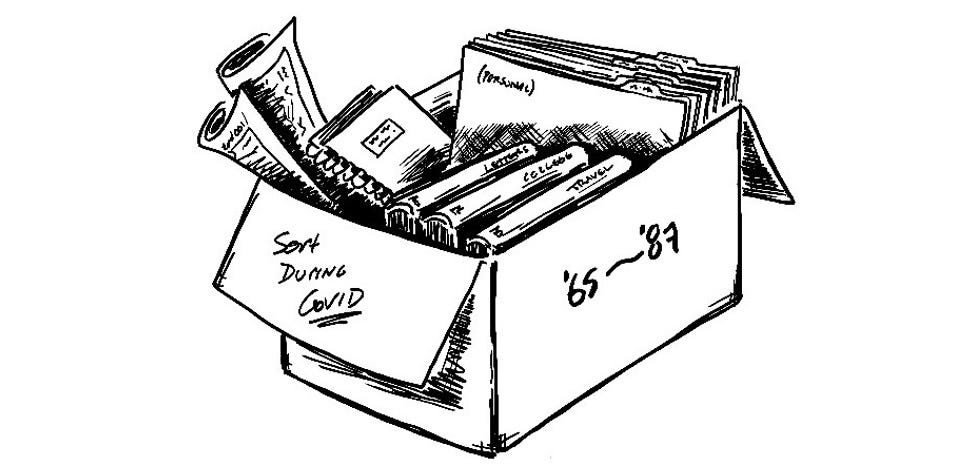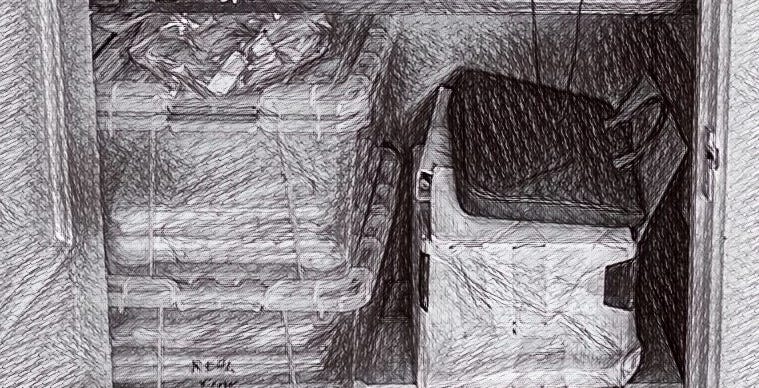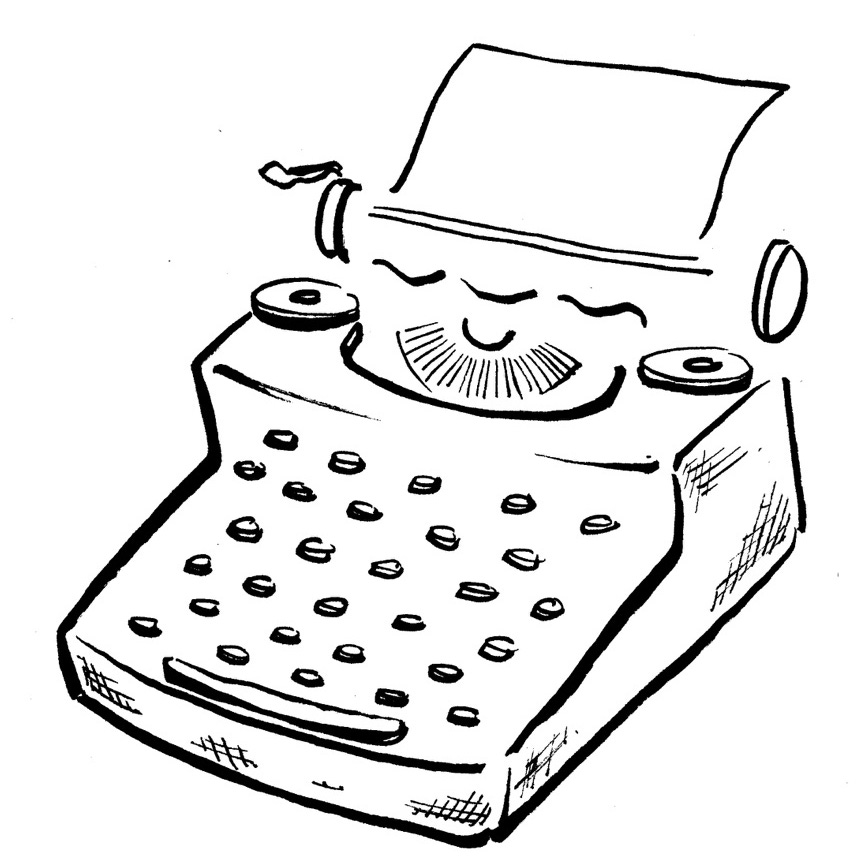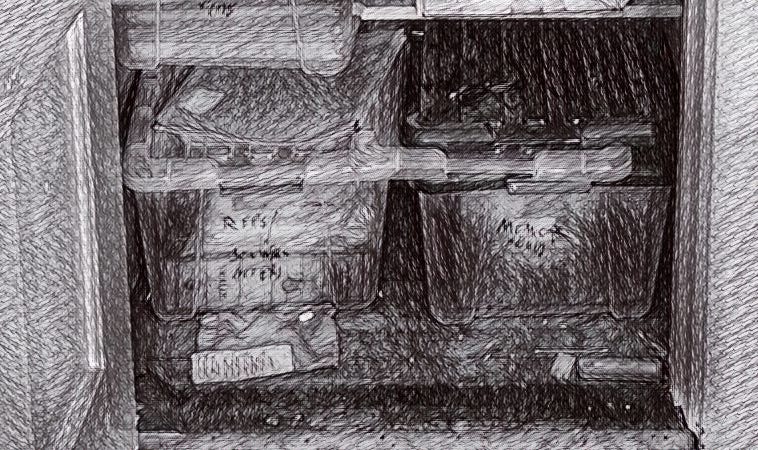Out West, they have a lot of land that’s dry. Really dry. So instead of storing things in garages, sheds, storage lockers, barns, and basements, some people pick any old out-of-the-way spot and start piling up baling wire, fence posts, old plumbing fixtures, electrical components, and every car part you can imagine. I have a friend who never throws anything out. She calls it her gold mine. And she keeps it really organized. Because you never know when you might need a carburetor for a 1952 Ford Pickup…and pronto.
I’m neither that foresighted nor organized. As I’ve moved from place to place over the years, I’ve left behind a lot of writing that was going nowhere and memorabilia that no longer seemed worth remembering.
I still have one box of random stuff that my mom had saved which, despite my urgent pleas that she throw it out, I agreed to take in a moment of weakness. And now I’m glad. Because you never know when you might need that block-lettered nine-page memoir of your trip to New York City when you were eight; or the stack of gas station card receipts that trace the route of your family trip on two-lane roads to Colorado when you were eleven; or the Junior High French assignment book that managed to survive forty years in the attic and could become a Proustian device for your personal recherché du temps perdu.
There’s also a whole envelope full of report cards that she stashed away in a manila envelope and carefully labeled by year and grade—her neat backward-slanting handwriting alone brings back memories of those days—many of which I’d prefer not to be reminded of. Behind it, is one of those old binocular-like ViewMaster things and a few of the circular discs with the tiny slides of places I liked to imagine visiting. And then there’s the iconic Pandora’s shoebox full of letters from friends and girlfriends in the mid-‘70s that I always promised myself I’d burn. It’s hard to throw that one out now because the handwriting on the envelopes brings back memories that, fifty years later, are more endearing than humiliating.
My only regret is that she didn’t save the baseball cards my brother and I collected in the ‘50s. Those, unlike much of the writing, would definitely be worth something.
That box is in my closet. Along with several binders, boxes, and bins filled with the research, writing, and miscellany that I’ve collected in the years since: 50 years of tax returns which, while now worthless even to the IRS, remind me of all the different ways I’ve made money (or haven’t); a random assortment of ads and brochures I wrote over the years; and a dozen or so journals that consist primarily of tortured self-conscious reflections interrupted by occasional pearls of naive wisdom.
Then there are the boxes of once-promising projects: research and drafts of a memoir by the God of Carrots who was, at one time, convinced I’d make him as famous as Mr. Potato Head; boxes full of notes, charts, and miscellaneous research about dozens of historical characters who would eventually run roughshod over my subconscious; and one of my largest collections: a scrapbook of AAA Guides, maps, brochures and matchbooks from my 2005-2007 cross-country trips in a VW van. I’ve drafted some pieces about those walks on America’s wild side and have convinced myself I need to keep the “archives” in case I ever decide to finish them.
When I realized how much time I’d be staying at home during COVID, I decided it was the perfect opportunity to merge and purge all that writing into a half dozen Staples-type-bound manuscripts that would fit on less than half a shelf—and throw the rest in a dumpster. That way, whoever had to take on the onerous task of sorting through all my worldly goods could stash them away in some box or bin to be discovered by some descendant down the road who wondered what his/her great-great-grandfather was like. The image was very liberating. But, as the photo-sketches1 below demonstrate, I didn’t get very far.
They say your life passes before your eyes in a flash when you die. It takes longer when you’re alive.
Echo was out of town. I had to do these myself. Clearly, writers should not be allowed to do image manipulation…











Can we please hang and read the letters from your teenage girlfriends, please?
I loved being reminded of View Masters which my Dad and his father sold in their camera and optometry store in downtown Syracuse in the 1950’s!